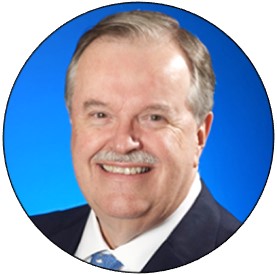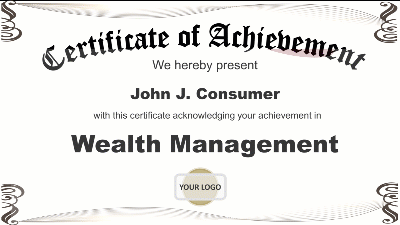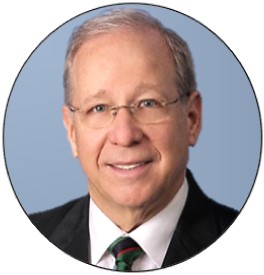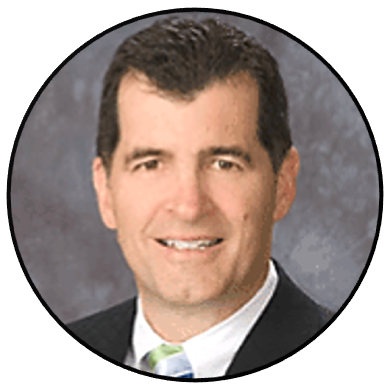Should advisors simply post business-related information on Facebook, in hopes of attracting prospects and reinforcing their brand with clients? Or, should advisors separate their personal from professional life? Should advisors use Facebook only for personal postings and LinkedIn and Twitter just professional updates?
There are no easy answers, no correct answers. Social media is too new for anyone to claim they have the answer. Plus, other variables must be factored in, like the age of your target clients and your predilection for pedicures, roller coaster rides, and adventure.
Yes, some self-proclaimed experts say they have this all figured out. But truth be told most experts and advisors are making it up as they go. There are no best practices and whatever best practices there are, well, are subject to change, daily.
I use LinkedIn and Twitter only for professional updates. I post mostly personal information on Facebook, knowing my Facebook friends include my best friends from childhood and college along with professional contacts, including advisors who sometimes serve as sources for stories.
I do post my professional work to Google+, though I think it’s mostly a waste of time because no one seems to be active on Google+. When posting my professional work, I do so knowing that all these social media outlets serve as yet another distribution channel for my brand, not unlike Yahoo or MSN, though perhaps on a much smaller, more intimate scale.
In general, I try not to overshare about what’s going on in my personal life on Facebook. Typically, I’ll share a “proud dad” moment about a son winning first place in a wrestling tournament, a photo of my sons with their junior-prom dates, or a check-in at a Celtics game.
Occasionally, I post a link to a story I’ve read that I think my friends might enjoy reading, often stories by Jason Gay, a sports writer at the Wall Street Journal.
I post all this to Facebook knowing that my Facebook friends who really are not my close friends in the real world may choose to read some or not. They can ignore what I’ve posted. They can unsubscribe from status updates. Or they can “unfriend” me. (By the way, I have a thick skin and short memory.)
Now, I do post the columns I’ve written for MarketWatch, though I do that on a “fan page” MarketWatch created for me. I’ve chosen not to post my professional work as a matter of practice on my personal Facebook page because of an experience I had several years ago.
In my early days on Facebook, I posted links to all my MarketWatch columns. Then, a former colleague wrote to say that she would unfriend me if I continued to post my professional work. She said she knew where to find my work and that she friended me for personal reasons. For me, that became the line of demarcation.
For the record, I don’t mind when my colleagues post links to their work. I am not fond, however, of shameless self-promotion. Telling me that you predicted yet another market top doesn’t work. And, I’m careful not to overshare. Do people care to know that I tucked my daughter into bed or if I hate diet Coke?
Do you think oversharing can do more harm than good? Why do advisors even use Facebook? Is it — even when they post personal updates — for business purposes? Or, is it because they simply want to show their sunny side, the real them — as if to say “when you hire me, this is who you get, the picture of my eating dumplings in Chinatown as well as the financial plan.”
Ron Rhoads, an assistant professor and the chair of the financial planning program at Alfred State College as well as the new chair of NAPFA, seems to strike a good balance. Rhoads posts mostly business-related information, attacks on FINRA’s efforts to regulate RIAs, with an occasional post about his trip to Disney World.
Roger Wohlner, CFP, a financial planer in Chicago also seems to get it right. Wohlner posts a mix of personal and professional information on his Facebook page. For instance, he’ll post the articles he writes for US News Smarter Investor Blog, which saves me the trouble of hunting for his column. And he’ll let his friends know that he went on a “civil disobedience” walk in Chicago in May during NATO’s summit.
Advisors who engage in shameless self-promotion or unfiltered oversharing risk alienating people who do not know them well. Say who you are, what you stand for, what makes you tick. Include some personal information but don’t get too familiar with your audience.
Facebooking with Professionals
Marc Freedman, CFP, the president and CEO of Freedman Financial Associates, is among those advisors who is active on social media. He recommends that advisors have a personal and a professional Facebook page, as he does.
As a rule, he doesn’t post personal information such as "Great Day at the Ballpark with my kids" complete with a photo of them, or "Why do I feel like a minority because I DON'T have a tattoo?" on his professional page.
What’s more, he tends to post only those items relevant to his business such as the promotion of an event, his firm’s newsletter, information about an upcoming radio show, a press release, the sharing of a story from the web, and the like on his business page. “This,” Freedman says, “reduces my "oversharing" of personal stuff and keeps my professional site, mostly business.”
Of course, the real hard part is when clients want to "friend" your personal page, Freedman says. “Most clients don't realize that I have a Business page, and by simply reminding them to "Like" me on Freedman Financial they can connect.”
Dave Yeske, CFP, Ph.D., the managing director of Yeske Buie also has two FaceBook pages, a personal page and a "fan page" for YeskeBuie.
Ditto Lee Baker, CFP, of Apex Financial Services. He maintains a personal page where he posts updates for the same reason as everyone else, just to keep up with friends and family. “At least I think that's why everyone else does it,” he says. Baker also maintains a business page, though he admits that it gets a “little gray” at times. “I set up a business page that is strictly business,” he says. “However, there are times when some business things make sense for family and friends.”
For example, Baker recently appeared on the NBC Nightly News with Brian Williams. The segment was on retirement planning, but he says it made sense to post a link on his personal site as well. In general, however, Baker says advisors should separate their professional life from their personal life and post only business-related info on LinkedIn and Twitter and personal info on Facebook. “I think that advisors are best served to keep the areas as separate as possible, Baker says. “I don't claim to fully understand the nuances of FaceBook for business vs. personal but I try to keep it that way.”
Twitter and LinkedIn
Freedman also uses LinkedIn and Twitter, though the results are less than noteworthy. For instance, he uses LinkedIn only as a business tool and he’s yet to find any clients who are interested in connecting with my firm via LinkedIn. “I use LinkedIn to connect with people in our business, association or those who I think creating a business-related network might work best,” says Freedman.
Freedman also has a business profile on Twitter but he post only business-relevant information, though sometimes he “mistakenly replies to someone's tweet and it may not have been meant for my twitter log.”
For his part, Yeske maintains a YeskeBuie Twitter account, a personal Twitter account, and a LinkedIn account. He uses LinkedIn for business purposes, as an alternative source of information about his background. In fact, there’s a link to his LinkedIn profile from his bio page on the Yeske Buie website.
Yeske says he uses LinkedIn in two ways. One, for professional networking with colleagues, as a discussion participant in a number of financial planning and academic groups (and administrator of some of them), and two, as a way to build his network of prospective clients. “By carefully analyzing the network of clients we're connected to, we can ask for introductions to their colleagues who may be in networks of interest, industry, company, and the like,” says Yeske. “We're still in the early stages of this but it looks promising.”
Best practices?
Freedman also says there aren’t best practices for advisors to follow or adopt. “We are definitely making it up as we go,” he says.
Others agree. “I think there are some best practices that are quite frankly common sense,” Baker says. “The rest of it we're just making it up as we move along.”
Freedman, for the record, also questions the use and value of those who are hold themselves out to be social media experts. “I’m not convinced that many of the ‘social media’ experts in the field of financial services are providing enough ROI on the services they provide,” Freedman says, noting that these so-called experts charge anywhere from $30 per hour to $250 per hour for their services.
For his part, Yeske has adopted if not a best practice, a social media process. Every other week the firm issues a new edition of TheLiveBigWay Digest, the blog the firm maintains on its
website. The firm then mail-merges a condensed version with links back to the website to their clients, prospective clients, allied professionals, and media contacts (I’m included on that list for the record). Next, the firm posts a link to the blog entry on YeskeBuie’s FaceBook fan page and Yeske’s LinkedIn account. The firm also tweets the link out as well. “We’re able to track traffic to the blog and the source of that traffic,” Yeske says. “Interestingly, I get a lot of media inquiries as a consequence of the mail-merged messages, usually not based on the actual content, but more because the email reminded someone who was working on a story that I might be a good source.”
As for his best practices, Baker offers this advice: “Think thrice before you post something political in nature. Think thrice before commenting on pictures no matter how hot looking he or she might be. Think thrice before commenting on what a jerk your last client meeting was. I also tread very lightly when it comes to anything that could be construed as advice.”
Oversharing
Dana Anspach, CFP, RMA, and a principal and financial advisor with Sensible Money, LLC, says it’s important for advisor’s business to have a LinkedIn, Twitter and Facebook presence and to develop a strategy as to how to use these items. “The key is to be personal, and at the same time separate your personal social media from your business social media,” says Anspach, who also write the About.com Guide to Money Over 55 column. “You have to connect with your audience emotionally by telling stories, but I would not mix my personal and professional social media into one.”
As for “reputation management,” Yeske’s philosophy is that you can't really maintain enough of a firewall to be effective. “I've got friends and family and clients connected to me on Facebook and I don't try to manage their access to my status updates,” he says. “The best policy in my opinion is simply not to post anything anywhere that would embarrass you with anyone.”
In Yeske’s case, for instance, he travels quite a bit and much of what he posts are just status updates related to that. “It seems like clients like to see those as much as anyone,” he says. “I do manage who I will ‘friend’ with the idea of my clients in mind. I've had some old high school friends try to connect to me on FaceBook and in some instances I have not approved the request because they were a little too ‘out there’ in terms of what they were posting and I didn't want that showing up on my newsfeed.”
Baker, meanwhile, is in the camp that it’s possible to "overshare" personal stuff with Facebook friends, some of whom might be clients and/or prospects. “It is absolutely possible to overshare personal stuff,” Baker says. “Fortunately for me, I am pretty boring but I get paranoid about little things. There is a picture of me at an event with the President of Georgia Tech that was posted by someone else. I'm holding a drink in my hand which I know to be punch but could give people the wrong impression.”
The end game
So, what do advisors hope to achieve for all these social media efforts? In some cases, not much. But if they come, it’s a bonus. “From a business perspective, I don't expect to achieve much from posts on the personal side and that's intentional,” says Baker. “For me it's kind of like going to church. I go there to worship not build business. With that being said, both have resulted in business opportunity.”
This Website Is For Financial Professionals Only


















